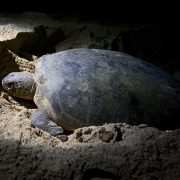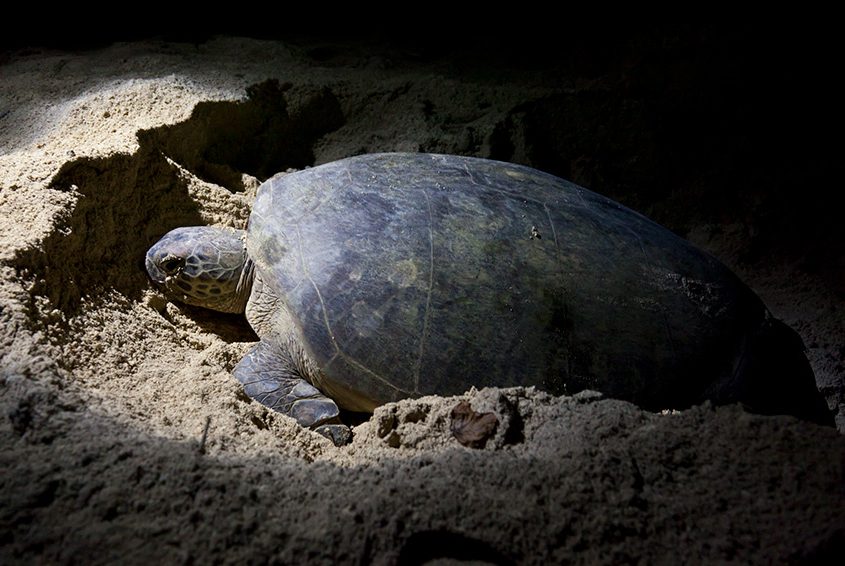Our summer visitors, the sea turtles, are already coming ashore at night to lay their eggs on the beaches of Puerto Morelos and elsewhere in the Mexican Caribbean. Here at Grand Residences, our security guards will be watching out for them all summer long.
Four species of sea turtle nest on the beaches of the Mexican Caribbean: the green turtle (tortuga blanca), the loggerhead (caguama), the hawksbill (tortuga carey) and occasionally the leatherback (tortuga laud), the world’s largest species.
Biologists working for the Puerto Morelos Municipal Government patrol the beaches and take care of the nests in coordination with the resorts along the shoreline, including Grand Residences. Our security team alerts them whenever they spot a turtle or a nest.
Once a nesting turtle has finished laying her eggs the biologists move them to a protected enclosure where they will be safe from the tides, predatory birds and animals and the passage of human feet.
Forty-five to 60 days later, the tiny baby turtles will chip their way out of the eggshell. Once dusk has fallen, they are released to race across the sand towards the sea.
How can you help?
Support the statewide turtle conservation campaign by following these rules during the summer:
- Alert the security staff if you see a turtle on the beach
- Be very quiet and keep still
- Watch from a distance of 10 meters
- Do not attempt to touch the turtle or crowd her
- Do not shine a torch or use the light on your mobile phone
- Please, no flash photography
- No smoking
- Follow the instructions given by security staff at all times
- Help us to keep our beaches and sea clean. Discarded straws, plastic bags, beer packaging, fishing lines and other garbage on the beach and floating in the water are lethal to turtles and other marine life. When you go for a walk along the shoreline take a beach cleaning bag with you
- When snorkeling or diving watch turtles from a distance, do not swim towards them and do not attempt to touch them
- Wear a t-shirt when snorkeling as protection from the sun instead of applying sun block. Sun products pollute the water and are harmful to marine life
- Turtles are protected by Mexican law and it is illegal to disturb, persecute and hunt them and consume their meat or eggs.
Mexican environmental agency regulations keep human contact with the turtle hatchlings to a minimum and the participation of hotel guests in turtle releases is no longer permitted.






Leave a Reply
Want to join the discussion?Feel free to contribute!